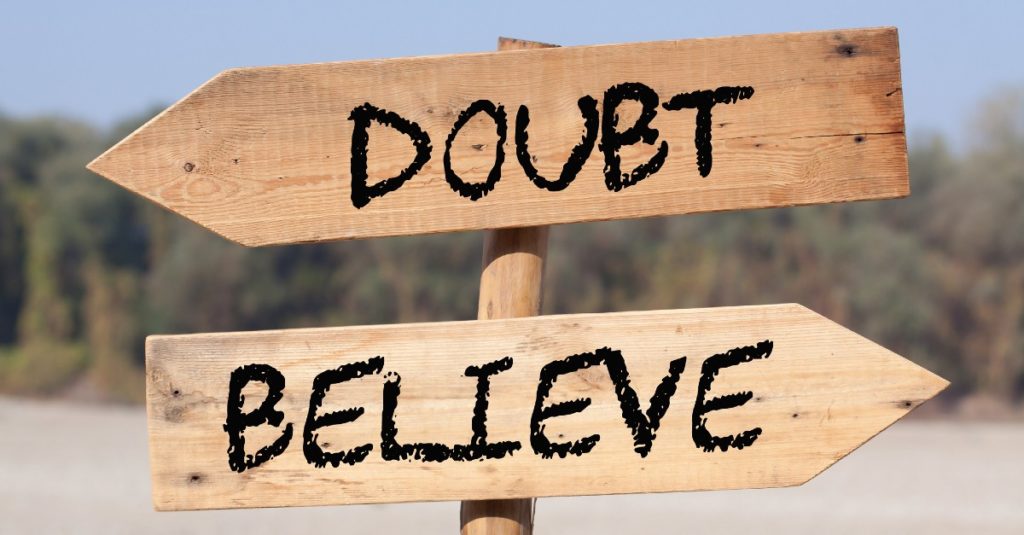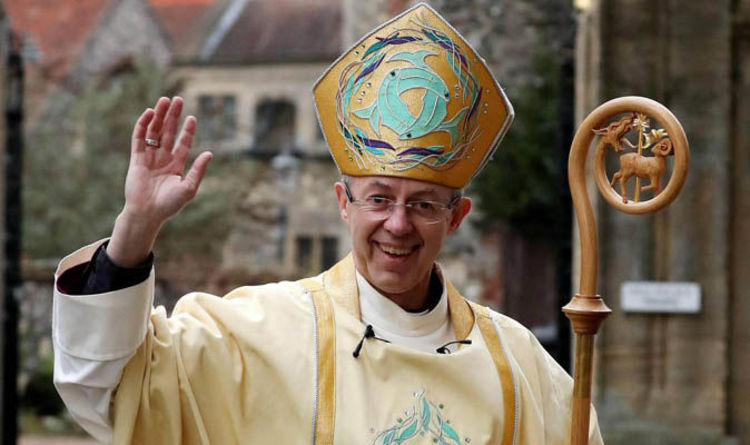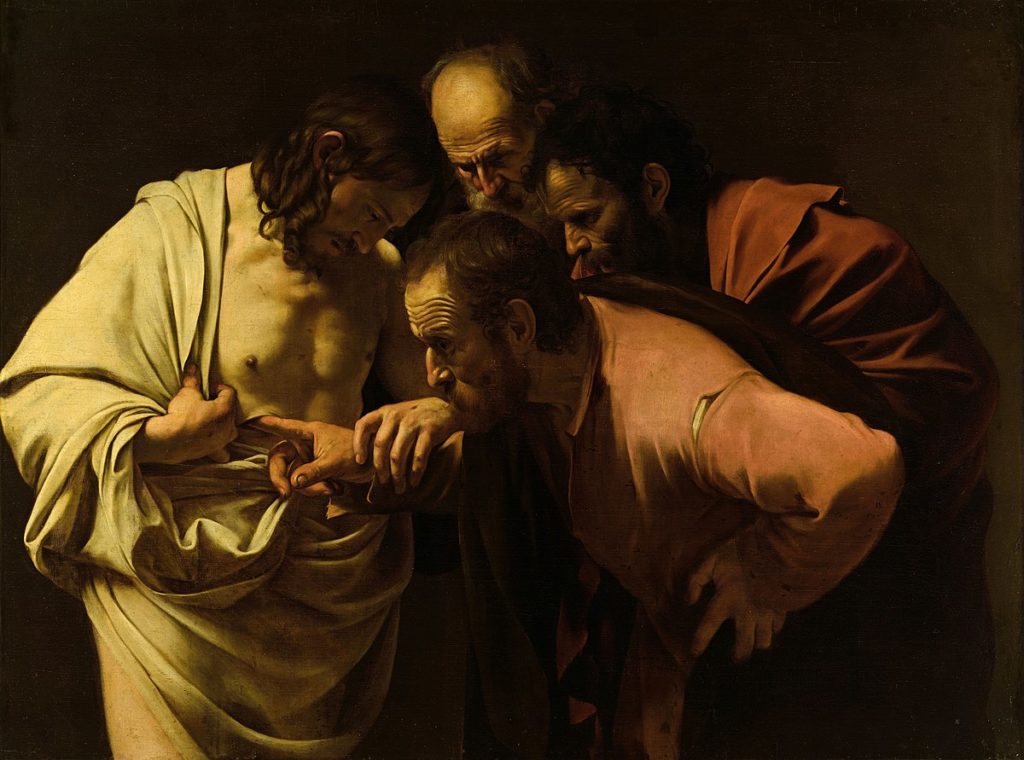Arguments for God
Suppose you found a rock at the end of your garden and asked yourself how the rock came to be there. You might answer that perhaps the rock has been there forever. If you know a little geology, you might notice that the rock is sedimentary and guess that it grew from layers of sediment in some river millions of years ago or perhaps the rock is igneous and was spewed from a volcano.
However, if you found a pocket watch at the end of your garden, you would not suppose that it resulted from natural causes. You would assume that the watch’s intricate design could only have been produced by a designer (Paley, 1803).
This is the argument from design advanced by William Paley in 1803. It can be summarised like this:
Evidence of design is evidence of a designer.
Looking around the natural world, we see evidence of design everywhere. We see design in a baby’s smile, in the intricacy of the human eye and in the beauty of a peacock’s tale. For Paley, the evidence of design in nature convinced him that nature has a designer and that designer is God. It’s a very persuasive argument.

Charles Darwin, in The Origin of the Species (Darwin, 1859), showed that much of the apparent design in nature can be explained by evolution. For example, Darwin showed how a primitive eye can evolve into a complex eye, no designer required. But more modern arguments from design offer examples of complexity in nature that evolutionary scientists have not yet explained.
For example, Stephen Meyer claims that complex molecules like DNA cannot be explained by evolution because evolution requires DNA to work its magic (Meyer, 2009). DNA itself requires a different explanation. Michael Behe says that some features of our anatomy — such as the flagella of bacteria or the blood clotting systems of mammals — are irreducibly complex and could not have evolved because there was no useful precursor to evolve from (Behe, 1996). According to Behe and Meyer, these features are evidence of design and must have had a designer.
Whether you are persuaded by the argument from design will depend on many factors but, whether you are finally persuaded or not, the argument is compelling.
Other arguments for God are less compelling. For example, St. Anselm, Archbishop of Canterbury (1033-1109) offered an argument that goes like this:
God is a being greater than which none can be imagined.
The Internet Encyclopedia of Philosophy
God exists as an idea in the mind.
A being that exists as an idea in the mind and in reality is greater than a being that exists only as an idea in the mind.
If God exists only as an idea in the mind, then we can imagine something that is greater than God.
But we cannot imagine something that is greater than God.
Therefore, God exists.
Anselm’s argument is famously hard to refute and I won’t attempt to refute it here but my question is this: What’s the point?
Is there anyone in the history of Christianity who contemplated Anselm’s Proof and said ‘Oh, yeah. I wasn’t sure before but now I am. God exists and Anselm has proved it.’
Who is the proof for?

William Lane Craig offers an updated version of another ancient proof for God. This argument comes from Islamic theology and, in its updated form, goes like this:
Everything that begins to exist has a cause.
(Craig, 1979)
The universe began to exist.
Therefore, the universe has a cause.
So far, so good but then Craig adds another premise and a dramatic conclusion.
If the universe has a cause, then an uncaused, personal Creator of the universe exists who sans (without) the universe is beginningless, changeless, immaterial, timeless, spaceless and enormously powerful.
(Craig, 1979)
Therefore, an uncaused, personal Creator of the universe exists, who sans the universe is beginningless, changeless, immaterial, timeless, spaceless and enormously powerful.
Again, I have no desire to refute Craig’s argument but I feel obliged to ask why he finds this proof useful and who he thinks will be persuaded by it.
Christian friends of mine have told me that they believe in God because they have experienced evidence of God. Quite right. I would believe in God too, if I experienced evidence of God. But then, if I did experience evidence of God, I would not need Craig’s or Anselm’s arguments. Again, I wonder, who are those arguments for?
Are there people who have not experienced evidence of God but who are persuaded that a personal Creator of the universe exists because everything that exists has a cause and that personal creator is ‘timeless, spaceless and enormously powerful’?
I also struggle with the concept of Christian doubt.

Justin Welby, Archbishop of Canterbury at the time, said he sometimes has doubts about his belief in God. In an interview with the BBC, Welby said he doubted in “lots of different ways” (BBC, 2014).
There are moments, sure, when you think, ‘Is there a God?’ ‘Where is God?’
(Welby, 2014)

Doubt is a common theme in Christianity. The Catechism of the Roman Catholic Church acknowledges that doubt is a possibility.
Voluntary doubt about the faith disregards or refuses to hold as true what God has revealed and the Church proposes for belief.
Involuntary doubt refers to hesitation in believing, difficulty in overcoming objections connected with the faith, or also anxiety aroused by its obscurity. If deliberately cultivated doubt can lead to spiritual blindness.
Catechism of the Catholic Church (CCC 2088)
Many Christian apologists say that doubt is a natural part of faith.
Doubt is natural. But, all too often, we think of this as a bad thing for a Christian. Rather than run from it, use it to your advantage. Bring your doubts to God and seek answers to your doubts.
Christianity.com
I can’t imagine what it is like to doubt the existence of God after experiencing evidence of God. I can’t think of another area of my life where I experience a thing and then doubt whether I experienced the thing. I might misremember aspects of, say, a vacation — Did we go to Tenerife this year or last year? — but I don’t doubt the fact of going to Tenerife. If I met Joe Biden, I can’t imagine later doubting whether Joe Biden exists and I’m sure that if I experienced God, I’d remember it.
The canonical example of a Christian with doubt is St. Thomas who doubted the resurrection of Jesus Christ.

Now Thomas, called the Twin, one of the twelve, was not with them when Jesus came. The other disciples therefore said to him, “We have seen the Lord.”
So he said to them, “Unless I see in His hands the print of the nails, and put my finger into the print of the nails, and put my hand into His side, I will not believe.”
And after eight days His disciples were again inside, and Thomas with them. Jesus came, the doors being shut, and stood in the midst, and said, “Peace to you!” Then He said to Thomas, “Reach your finger here, and look at My hands; and reach your hand here, and put it into My side. Do not be unbelieving, but believing.”
And Thomas answered and said to Him, “My Lord and my God!”
John 20:24-28
Even St. Thomas required evidence before he believed in the risen Christ. I’m willing to bet that Thomas did not doubt again after poking the risen Christ’s wounds. I started out by wondering who the proofs of God are meant to persuade. I suspect that they would not have persuaded St. Thomas and, after he was persuaded by evidence, the proofs became unnecessary.
It’s not my intention with this essay to encourage anyone to doubt their belief in God. If you have seen evidence of God, you should certainly believe in Him. But if you *have* seen evidence, you should not doubt.

